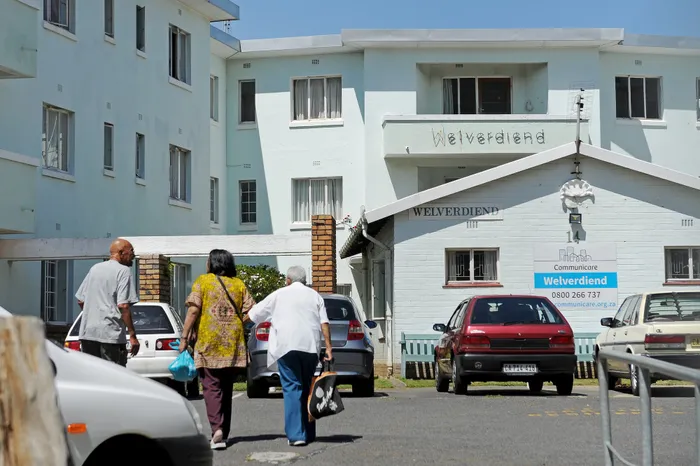Why property ownership remains a privilege: the impact of historical denial of access

Historically, property access was denied to the majority, making the sector accessible only to the affluent few.
Image: David Ritchie/African News Agency(ANA)
Historically, the majority of South Africans have been denied access to property ownership, which has systematically resulted in property ownership being seen as one giant leap that only a few privileged could afford.
With the average net salaries now at just above R21 000, but households still under pressure from rising living costs, households under strain naturally prioritise survival, that is, groceries, transport and school fees, says Fracprop’s Chief Growth Officer, Palesa Masiteng.
Property affordability
Last week, PayInc, formerly BankservAfrica, launched the PayInc Net Salary Index, a revamped version of the well-known Take-home Pay Index, featuring a revised sample and new methodology to deliver deeper insights into South African salary trends and the labour market.
Tracking the nominal net salaries of an estimated 2.1 million recipients earning between R5 000 and R100 000 per month, the revised PayInc sample for August showed fewer salaries were paid in the higher income range of R40 000 to R100 000 in the first eight months of 2025.
Most salaries were paid in the lower income band of R5 000 to R10 000, followed by a smaller proportion in the R10 000-R40 000 range.
Using the revised PayInc sample, the net salaries of only 18.3% of salary earners would be sufficient to be able to afford a property of R1.3m in value if such a salary earner were the sole owner of the property, according to Elize Kruger, an independent economist.
Masiteng says that, however, South Africans are aspirational, and property has always been viewed as the cornerstone of wealth creation.
“The shift is that people now understand property not only as a roof over their head but as an asset that can generate value through modern and innovative models like short-term rentals and aparthotels.”
She adds that FracProp makes it possible to own in these new asset classes without needing large capital as an entry ticket. “Now people don’t have to choose between survival and ownership; they can start small, build equity, and grow with the market.”
Low-income earners
Traditional property ownership is almost out of reach for low-income earners.
Bond repayments, transfer fees, levies, and the need for a sizable deposit make it virtually impossible for someone earning R5 000 to R10 000 to enter the market, says Masiteng.
At the same time, she says property prices continue to rise faster than wages, creating an even bigger gap.
“FracProp changes the equation by giving people access to property as a value-creating asset through fractional ownership. By starting with as little as R100, individuals can participate in high-yield segments like short-term rentals and aparthotels, where properties are designed to generate income from day one. This turns ownership into something practical and income-producing, not just aspirational,” says Masiteng.
FracProp, a startup dedicated to making property ownership accessible to all South Africans by allowing people to own in high-yield properties, aparthotels, and student housing, with as little as R100, says it is rewriting this narrative, as a step-by-step journey, starting with small contributions that grow into significant equity over time, and this is achieved through the power of community.
It says that most importantly, it is not just about owning property, but owning property in the new economy of living.
“Where short-term rentals, aparthotels, and co-living models create both lifestyle and income opportunities. That reframing is powerful. It shifts property from a far-off dream into a practical, inclusive, wealth-building tool that works even for those outside the traditional banking system.”
Property market access
The chief growth officer says that while R100 will not change a life overnight, it changes the trajectory and mindset. She says that the entry point allows someone to access the property market in ways they never could before.
Over time, she says, consistent small purchases compound into meaningful equity. “More importantly, it provides exposure to high-performing segments like aparthotels, where short-term rental income creates value beyond simple appreciation.
For someone earning R5 000 to R10 000, this is the bridge between exclusion and ownership, shifting the mindset from being just a consumer to becoming a co-owner of value-generating assets.”
Masiteng says for the first time, people who thought property was “not for us” see themselves as part of the market. She says lower-income earners are excited because they can enter without needing a bank loan or a large deposit.
She adds that middle-income earners view it as a way to diversify into new living models like aparthotels and high-yield short-term rentals, which were previously only accessible to wealthy investors.
“Both groups are realising that property is no longer just about owning a home; it’s about owning a share in a value-generating asset that pays today and grows tomorrow.”
The platform says that while inflation erodes savings, property is one of the few assets that historically outpace inflation. It says the problem is that most South Africans have been locked out of this hedge because of affordability.
“Fractional ownership flips the model: instead of needing R500 000 to buy an apartment, you can pool with others and access income-generating assets like short-term rental apartments or aparthotels, in which you earn while you own.
"That makes it not only a hedge against inflation but also a realistic pathway to building wealth, even when budgets are tight.”
Independent Media Property
Related Topics: